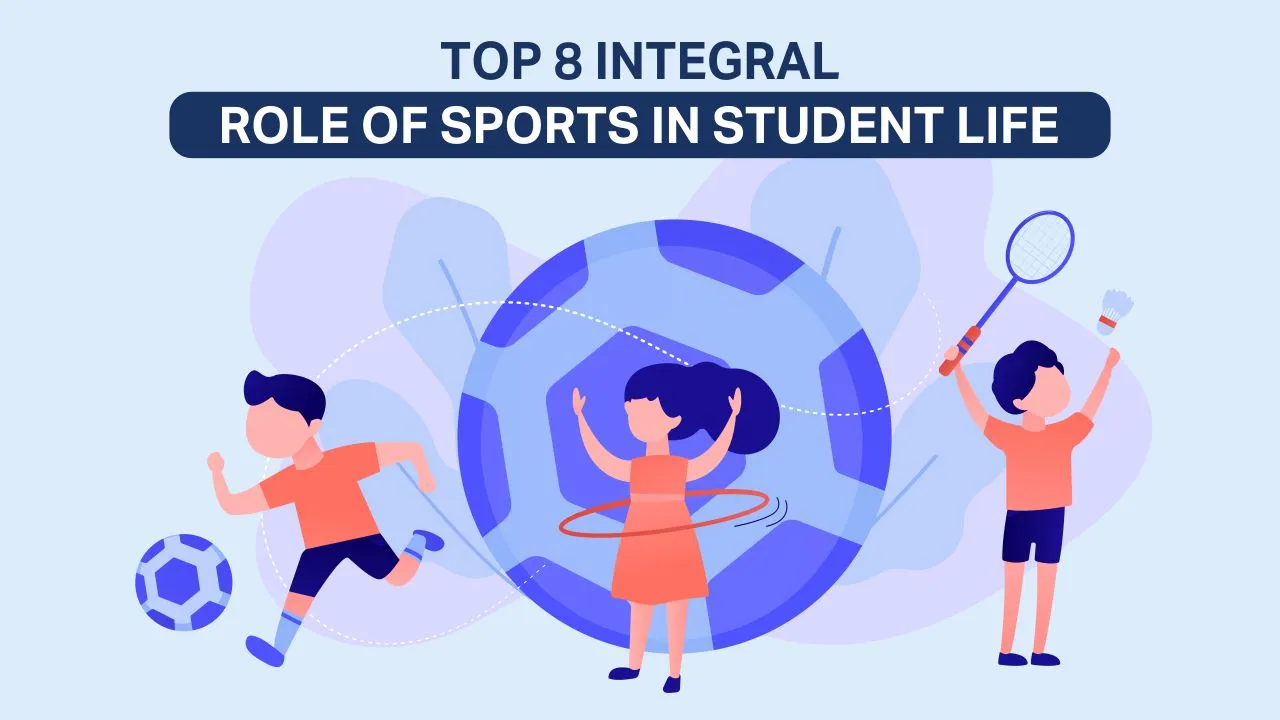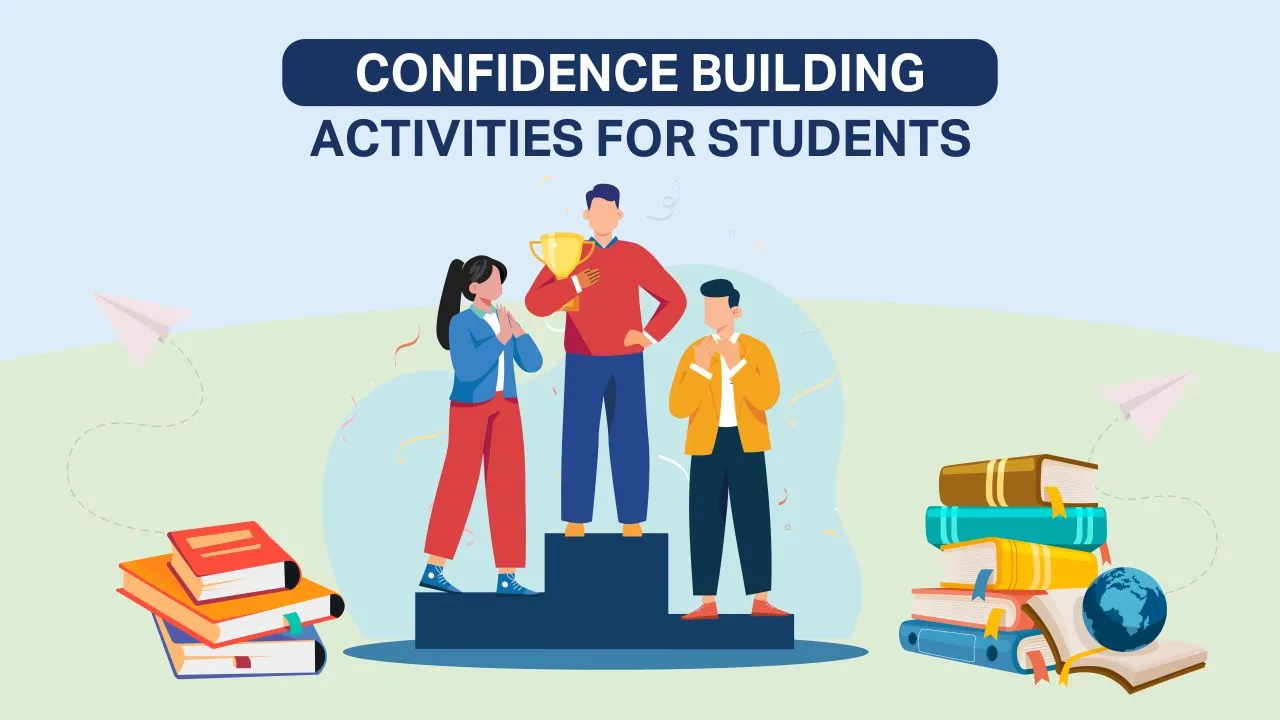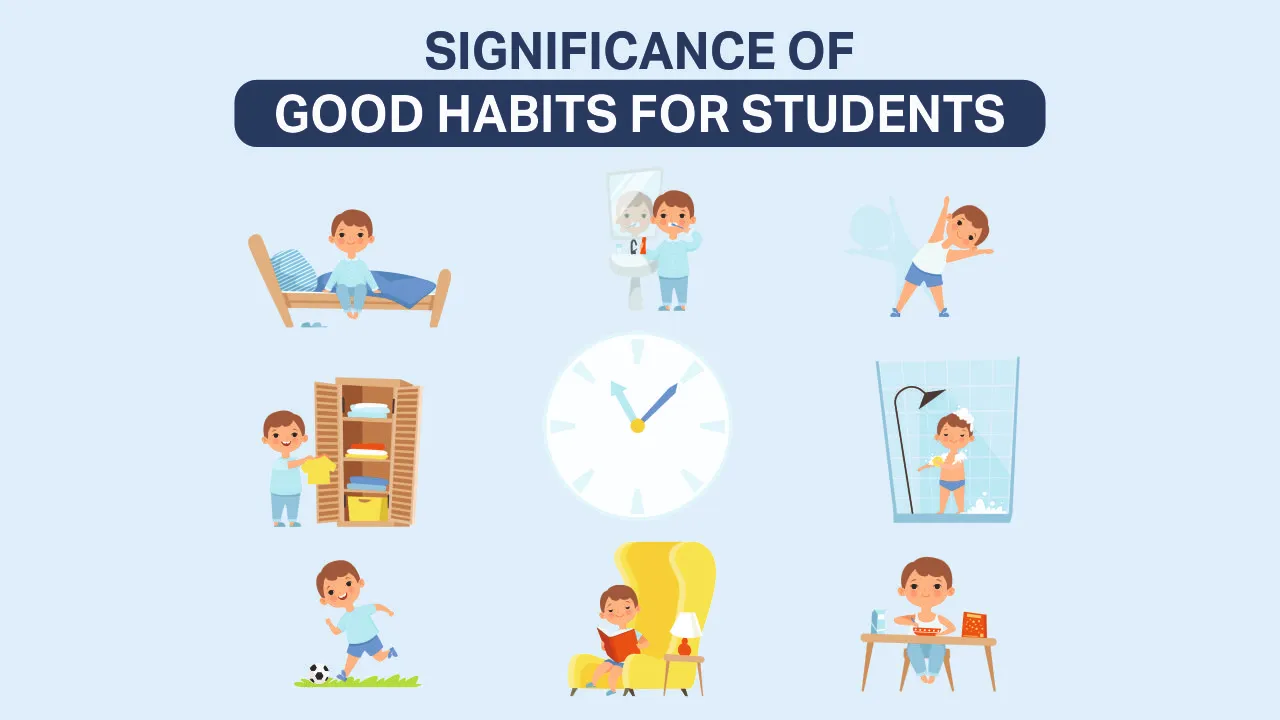Top 8 Integral Role of Sports in Student Life
Do you know the prime role of sports in your life? And why it is important to indulge yourself in physical activities? Well, it plays a vital role in the holistic growth of students. Beyond the physical benefits, students get to learn numerous opportunities for personal growth, skill-building, and fostering a sense of community. In this blog, we will explore the multifaceted role of sports in student life and why they are an essential component of a well-rounded education.
The Integral Role of Sports in Student Life
1. Encouraging Physical Fitness and Health
One of the most obvious benefits of sports in student life is the promotion of physical fitness and overall health. Your regular participation in sports can help you stay active and maintain a healthy weight. It also strengthens your muscles, improves cardiovascular health, and enhances flexibility, contributing to a lifetime of well-being.
2. Discipline and Time Management
Participating in sports requires commitment and discipline. You must balance your academic responsibilities with your physical activities. This teaches you valuable time management skills, the importance of setting priorities, and the ability to meet deadlines – all of which are crucial life skills.
3. Teamwork and Cooperation
Every sport needs teamwork, students learn the value of cooperation, effective communication, and teamwork through sports. These skills are transferable to various aspects of life, including the workplace, where collaboration is often essential for success.
4. Leadership and Responsibility
Sports often provide opportunities for students to assume leadership roles, such as team captain or coach. These roles require individuals to take on responsibilities, make decisions, and motivate their teammates. Learning to lead in a sports context can help students become confident and capable leaders in other areas of their lives.
5. Building Self-Confidence
Achieving success in sports can significantly boost a student’s self-confidence. Whether it’s scoring a goal, making a basket, or winning a race, these accomplishments can serve as a foundation for self-belief and a positive self-image. This newfound confidence can extend beyond the playing field and into other aspects of life.
6. Stress Relief and Mental Health
Students who engage in physical activity through sports can be an excellent stress reliever. It helps them manage their mental health by reducing anxiety and depression while promoting relaxation and a sense of well-being. Additionally, the social aspects of sports can combat feelings of isolation and loneliness.
7. Setting Goals
Setting and achieving goals is a fundamental part of sports. Whether it’s improving one’s personal best in a race or winning a championship, students learn to set goals, work hard to achieve them, and experience the satisfaction of success. This skill is invaluable when applied to academic and career goals.
8. Character Development
Participating in sports often leads to character development. You learn to persevere through challenges, accept defeat gracefully, and show sportsmanship in both victory and defeat. These qualities contribute to the formation of a strong character, which is essential for becoming a responsible and ethical individual.
Conclusion
The role of sports in student life is multifaceted and far-reaching. From physical fitness and health to character development and stress relief, sports provide invaluable lessons and experiences that shape students into well-rounded individuals. Encouraging students to participate in sports is not just about promoting physical activity but also about nurturing personal growth, teamwork, leadership, and a positive outlook on life. Therefore, schools and institutions should continue to prioritize sports as an integral part of the educational journey, recognizing the many benefits they bring to students’ lives.





